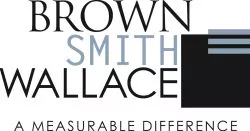The IRS has warned taxpayers of automated phone scam telephone calls and new tactics used by scammers demanding tax payments on gift cards. This summer has seen a significant increase in the frequency of these calls. IRS Commissioner John Koskinen warned that scammers are becoming more sophisticated and using more automated means of communication in an effort to reach the largest number of victims possible.
The IRS explained that the fake, automated calls claim to be a taxpayer's final warning before legal action is taken. The calls are often accompanied with threats to arrest, deport, or revoke the driver's license of the victim for failure to make the purported payment. Once a victim calls back, impersonators demand payments on iTunes and other gift cards to settle tax bills.
The IRS has reported that these phone scams have been increasing in both number and type. In addition to scams seeking payment via gift cards, criminals are also demanding payment for a nonexistent "federal student tax," soliciting W-2 information from payroll professionals, pretending to be from the tax preparation industry, and purporting to "verify" return information over the phone.
In addition, there is a new scam that targets tax professionals. The scam implements a phishing scheme that requests tax professionals to download and install a software update via a link included in an e-mail. In actuality, the IRS explained, the downloaded software is a program designed to track key strokes, a common tactic used by cybercriminals to steal login information, passwords and other sensitive data.
The IRS reminds individual taxpayers that it will never demand immediate payment over the phone, nor call about a tax obligation without having first mailed a bill. Additionally, the IRS reminds tax professionals to avoid clicking on links or opening attachments contained in e-mails and to ensure that they run security scans to search for viruses and malware.
The content of this article is intended to provide a general guide to the subject matter. Specialist advice should be sought about your specific circumstances.

